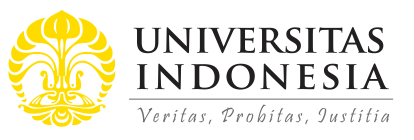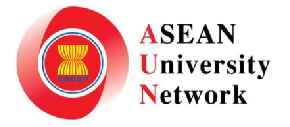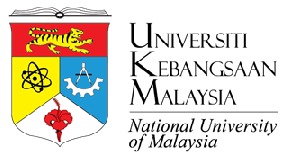
Abstract
Rural entrepreneurship is believed to be one of the most strategic ways to advance community empowerment that can directly lead to national economic development, by optimizing local resources, technology, and digitalization. This article elaborates on the program conducted to support the community’s economy and increase business and digital marketing literacy in Sajang Village, Sembalun, East Lombok. The program consists of bar soap products making workshop that optimizes coffee and copra as the local potential, targeted for people of productive age who are interested in establishing a home-based business. The soap manufacturing process is informed by laboratory research formulas that have been tested and are safe, and the produced soap offers advantages over ordinary soap for both aromatherapy and skin care capacities to overcome acne and remove dead skin cells. The program’s objective is to stimulate the growth of local entrepreneurship and advance the development of authentic regional products as a sustainable income source that will strengthen the local economy. The analysis of the program’s pre- and post-tests and questionnaires indicates that such programs have enhanced participants’ literacy, skills, and motivation. A small business group was founded in subsequent to the program to launch the business; however, additional support from the local government and company is still required to maintain a supportive atmosphere for new entrepreneurs. Such entrepreneurship training could be an effective way to empower a community and open further opportunities for people in other rural areas.
References
Badan Pusat Statistik. (2021). Kabupaten Lombok Timur dalam angka (Publication No. 52030. 2102). BPS Kabupaten Lombok Timur. https://lomboktimurkab.bps. go.id/publication/2021/02/26/16598bcbc9b45c7cd5d5a15b/kabupaten-lombok- timur-dalam-angka-2021.html
Benjamin, S. E., & Abbass, A. (2019). Effect of superfatting agents on soaps properties. Journal of Oil Palm Research, 31(2), 304–314. http://jopr.mpob.gov.my/effect-of- superfatting-agents-on-soaps-properties/
Datta, R., Khyang, N. U., Prue Khyang, H. K., Prue Kheyang, H. A., Ching Khyang, M., & Chapola, J. (2015). Participatory action research and researcher’s responsibilities: An experience with an indigenous community. International Journal of Social Research Methodology, 18(6), 581–599. https://doi.org/10.108 0/13645579.2014.927492
Ektakhare, & Gupta, N. (2019). Assessment of the physicochemical properties of selected oils. International Journal of Advanced Research, 7(2), 1058–1061. http://dx.doi. org/10.21474/IJAR01/8579
Faruk, M. U., Adebayo, A. N., Yusha, K., & Bello, K. Y. (2021). Comparative studies of the curing and hardening process of soaps produced from locally processed saturated and unsaturated fatty acids. Algerian Journal of Engineering and Technology, 5, 1–8. https://jetjournal.org/index.php/ajet/article/view/113
Kadhum, M., Y, Bkhakh, C. K., & Albehadili, M. H. (2018). The effect of sodium hydroxide solutions with different pH on the corrosion of iron alloy (C1010) in industrial water. Journal of Advances in Chemistry, 15(1), 6136–6141. https://doi.org/10.24297/jac.v15i1.7134
Karo, A. Y. K. (2011). Pengaruh penggunaan kombinasi jenis minyak terhadap mutu sabun transparan. [Bachelor’s thesis, Institut Pertanian Bogor]. IPB Repository. https://repository.ipb.ac.id/handle/123456789/51182
Karwati, L., Ansori, A., & Mulyono, D. (2018). Women empowerment to build entrepreneurship. Journal of Nonformal Education, 4(2), 169 –176. https://doi.org/10.15294/jne.v4i2.16005
Kemendesa. (2019). Data status kemajuan dan kemandirian 15.000 desa prioritas (5.000 desa tertinggal). Kementerian Desa, Pembangunan Daerah Tertinggal, dan Transmigrasi. https://kemendesa.go.id/berita/assets/images/gallery/einfo/ Tertinggal.pdf
Mokkapati, A., & Mada, P. (2018). Effectiveness of a teacher training workshop: An interventional study. Journal of Clinical & Diagnostic Research, 12(2), 9–12. Muñoz, P., & Kimmitt, J. (2019). Social mission as competitive advantage: A configurational analysis of the strategic conditions of social entrepreneurship. Journal of Business Research, 101, 854–861. https://doi.org/10.1016/j.jbusres.2018.11.044
Murty, B. D. A., Domai, T., & Riyanto, R. (2016). Implementasi program pengembangan Kawasan Agropolitan Sembalun Kabupaten Lombok Timur. Jurnal Pembangunan dan Alam Lestari, 7(2), 134–142. https://jpal.ub.ac.id/index.php/jpal/article/view/248
Ogujiuba, K. K., Olamide, E., Agholor, A. I., Boshoff, E., & Semosa, P. (2022). Impact of government support, business style, and entrepreneurial sustainability on business location of SMEs in South Africa’s Mpumalanga Province. Administrative Sciences, 12(3), Article 117. https://dx.doi.org/10.3390/admsci12030117
Onahring, B. D., & Singh, K. D. (2020). Rural entrepreneurship for sustainable economic development in Chandel District, Manipur, India—An exploration. International Journal of Research Innovation and Entrepreneurship, 1(2). https://journal.unnes.ac.id/sju/index.php/ijrie/article/view/49630
Prasandha, D., & Susanti, Y. D. (2022). Empowering rural entrepreneurs through independent- entrepreneurship literacy program. ASEAN Journal of Community Engagement, 6(1), 48–75. https://doi.org/10.7454/ajce.v6i1.1176
Rasidah., & Sumarna, D. (2018). Studi formulasi beberapa minyak nabati pada pembuatan sabun mandi padat. Jurnal Teknologi Pertanian Universitas Mulawarman,13(1), 1–6.
Sukeksi, L., Iriany., Grace, M., & Diana, V. (2021). Characterization of the chemical and physical properties of bar soap made with different concentrations of bentonite as a filler. International Journal of Technology, 12(2), 263–274. https://doi. org/10.14716/ijtech.v12i2.4130
Suprianto., Karismawan, P., & Alwi, M. (2021). The impact of COVID-19 on the activities of the small and medium micro business households (MSMES) in East Lombok district, West Nusa Tenggara Province. American Journal of Humanities and Social Sciences Research, 5(6), 315–328.
Tabares, A., Londoño-Pineda, A., Cano, J. A., & Gómez-Montoya, R. (2022). Rural entrepreneurship: An analysis of current and emerging issues from the sustainable livelihood framework. Economies, 10(6), Article 142. https://doi.org/10.3390/economies10060142
Tetui, M., Coe A.-B., Hurtig A.-K., Ekirapa-Kiracho, E., & Kiwanuka, S. N. (2017). Experiences of using a participatory action research approach to strengthen district local capacity in Eastern Uganda. Global Health Action, 10(4), 104–115. https://doi.org/10.1080/16549716.2017.1346038
Vidal, N. P., Adigun, O. A., Pham T. H., Mumtaz, A., Manful, C., Callahan, G., Stewart, P., Keough, D., & Thomas, R. H. (2018). The effects of cold saponification on the unsaponified fatty acid composition and sensory perception of commercial natural herbal soaps. Molecules, 23(9), Article 2356. https://doi. org/10.3390/molecules23092356
Wilkinson, P., & Quarter, J. (1995). A theoretical framework for community-based development. Economic and Industrial Democracy, 16(4), 525–551. https://doi. org/10.1177/0143831X95164003
Recommended Citation
Zulys, Agustino; Syauqi, Muhammad Iqbal; Adriana, Elva Dissa; Istiqomah, Muhsinatul; Susanto, Bambang Heru; and Haidir, Banu Muhammad
(2023).
Community Empowerment in Sajang Village Through Coffee Soap Making and Entrepreneurship Training.
ASEAN Journal of Community Engagement, 7(1), 37-52.
Available at: https://doi.org/10.7454/ajce.v7i1.1201







